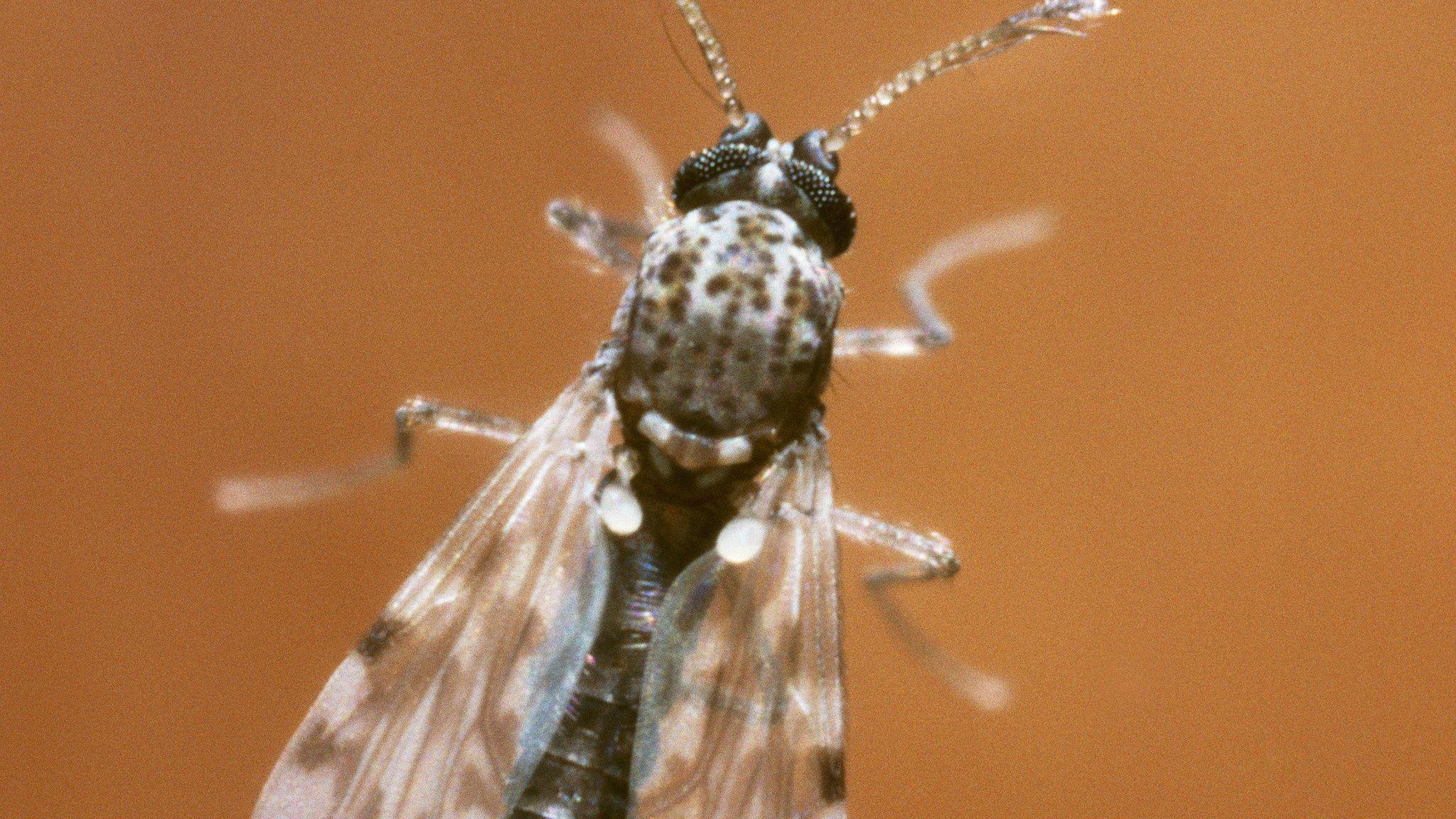Bluetongue: Restrictions after virus found in cattle on Kent farms
- Published
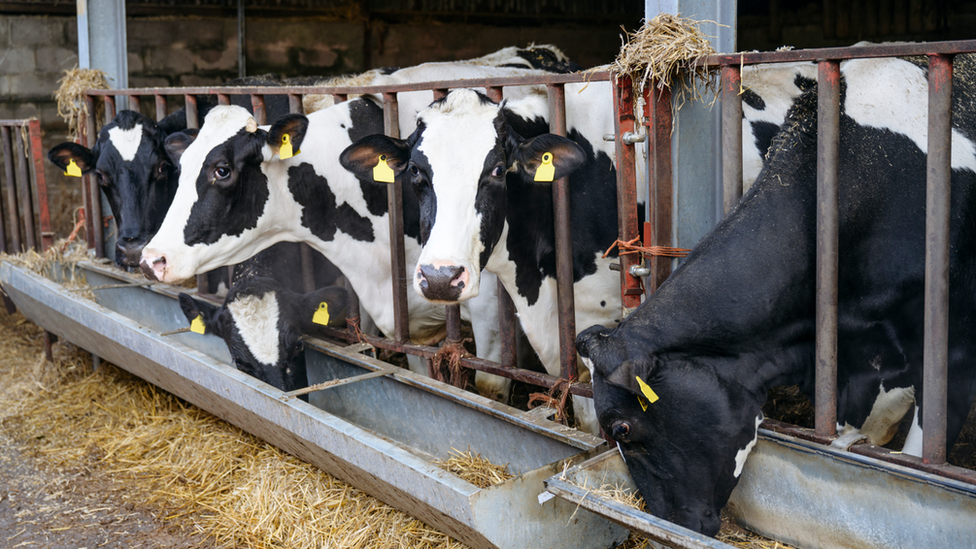
Bluetongue is a viral infection which affects animals such as cows and sheep
Restrictions have been put in place in Kent after five cases of bluetongue were found in cattle.
The Department for Environment, Food and Rural Affairs (Defra) said on 11 November it had discovered the virus in a cow on a farm near Canterbury.
A 10km (6 mile) temporary control zone was introduced, restricting the movement of animals.
On Sunday, Defra announced four more cows on two additional farms had tested positive for the virus.
The department said the animals would be humanely culled to try to halt the spread.
Farmers within the control zone can apply for licences to move livestock if there is a specific welfare need.
The viral infection affects cattle, sheep, goats and deer, and can cause painful ulcers and swelling around the mouth and nostrils.
It can also lead to breathing problems, lameness and infertility, and affects milk production.
It is spread by the bite of midges, and DEFRA said the south and east of England are especially vulnerable, due to winds carrying the insects across the Channel.
The disease poses no risk to humans or the food chain.

Follow BBC South East on Facebook, external, on X, external, and on Instagram, external. Send your story ideas to southeasttoday@bbc.co.uk, external.
- Published19 June 2023
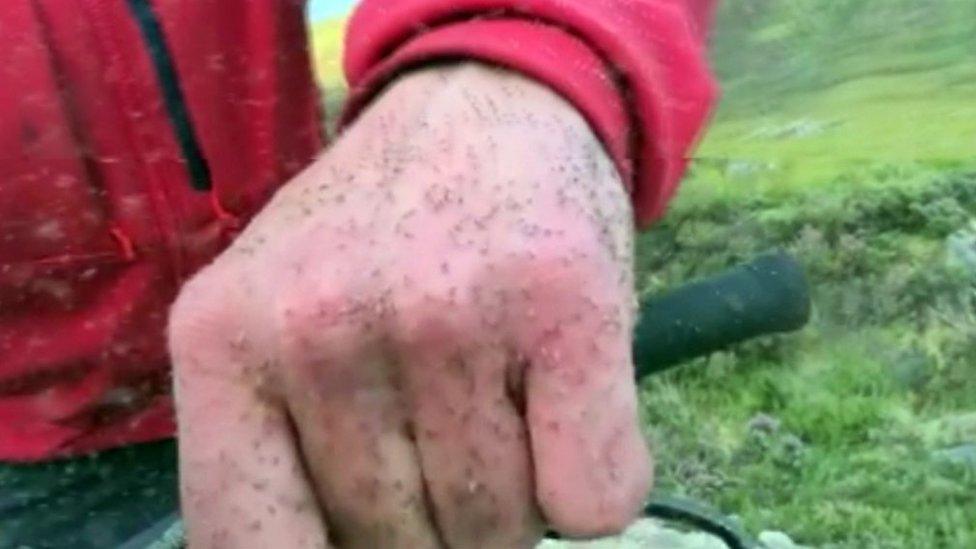
- Published19 February 2021
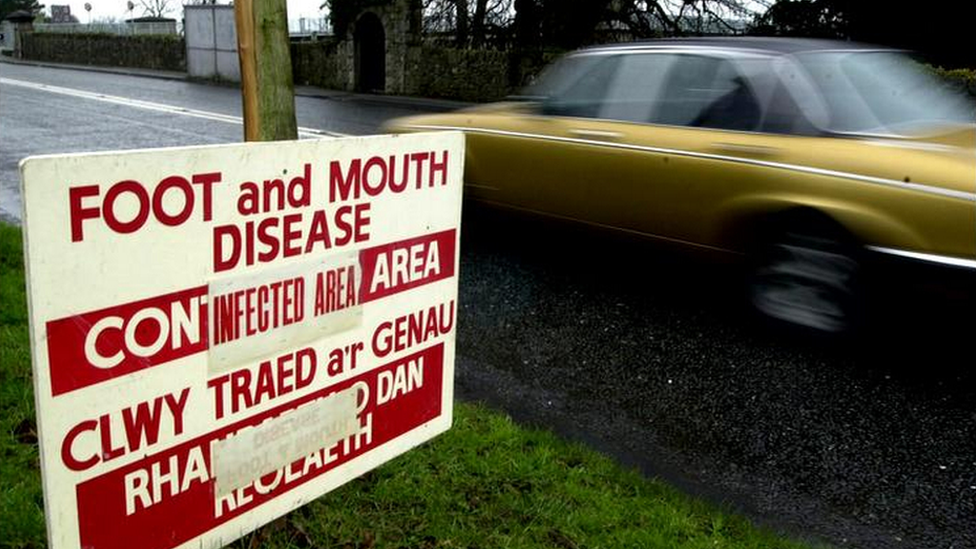
- Published6 December 2018
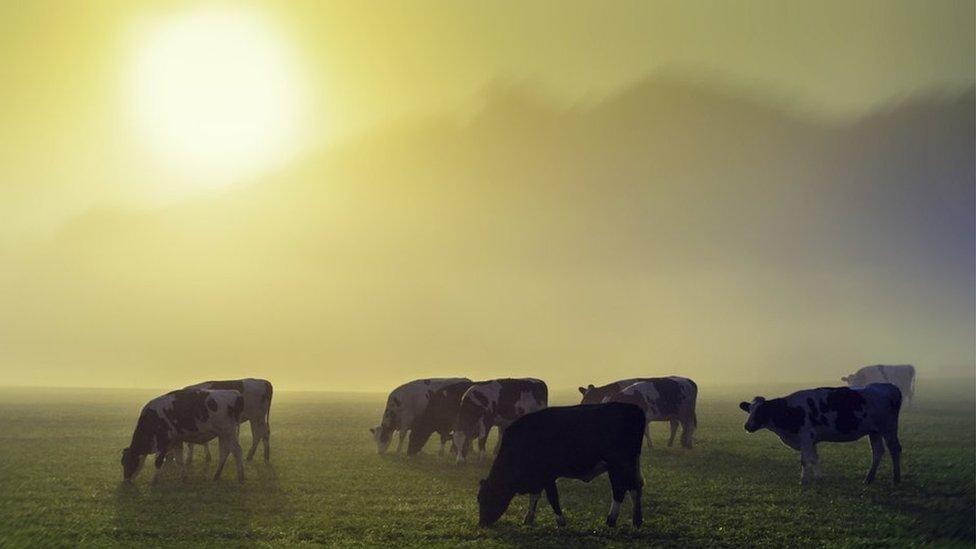
- Published17 February 2016
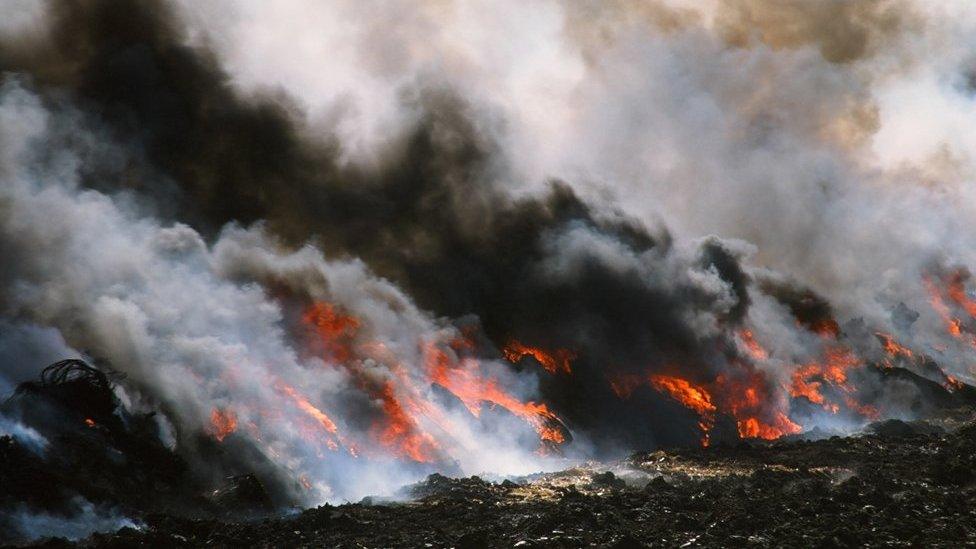
- Published26 May 2015
